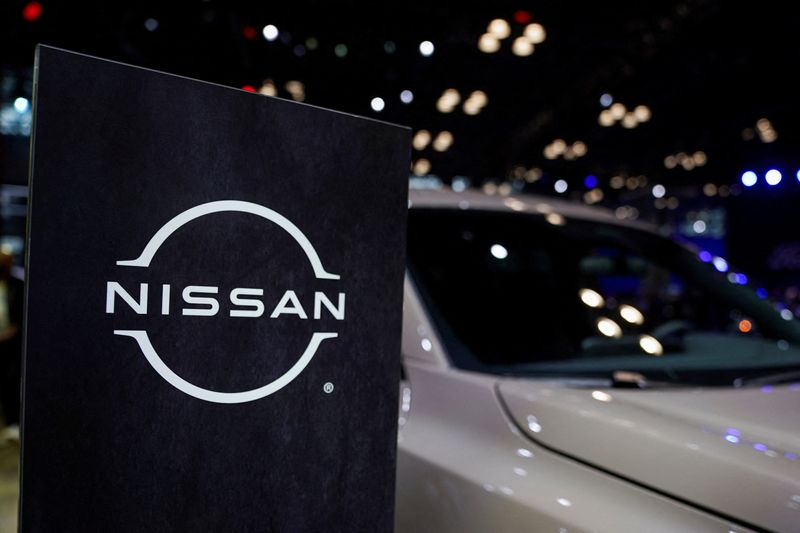Select Language

TOKYO (Reuters) -Nissan Motor shares slumped as much as 10% in Tokyo trade on Friday, a day after the Japanese automaker said it would cut 9,000 jobs and 20% of its manufacturing capacity as it struggles with sales in China and the United States.
The stock was on track for its biggest one-day price drop since August. It last traded down 6.5% at 383.5 yen, just above a four-year low.
Japan's third-biggest automaker on Thursday slashed its full-year operating profit forecast by 70% and scrapped its net forecast altogether due to restructuring, which it said would cut costs by 400 billion yen ($2.61 billion) in the financial year to March-end.
Like many global automakers, Nissan (OTC:NSANY) is struggling in China where BYD (SZ:002594) and other domestic rivals are winning market share with affordable electric vehicles and petrol-electric hybrids equipped with advanced software.
Nissan is also challenged in the U.S. where it lacks a line-up of hybrids just as that vehicle type is in strong demand.
CEO Makoto Uchida said on Thursday Nissan had not foreseen hybrids' sudden popularity in the U.S. and that demand for revamped versions of core models had not been as strong as hoped.
Nissan's restructuring is the latest chapter in a long-running attempt to revitalise its business, having never fully recovered from the 2018 ousting of former Chairman Carlos Ghosn and scaling back of its partnership with Renault (EPA:RENA).
On Friday, Minister of Economy, Trade and Industry Yoji Muto declined to comment to reporters when asked his views on potential government support for Nissan.
Tokai Tokyo Intelligence Laboratory analyst Seiji Sugiura placed much of the blame for Nissan's U.S. hybrid situation on management that he said was mainly pinning hope on selling new EV and traditionally powered models.
"The company released its mid-term plan this spring, but it in the end there was no meaning to that. I think their understanding of the situation is completely wrong," Sugiura said.
Nissan's mid-term plan announced in March involved 30 new models over the next three years, raising global sales by 1 million vehicles, an operating profit margin exceeding 6% by the end of fiscal 2027 and total shareholder returns of more than 30%.
($1 = 153.2000 yen)

